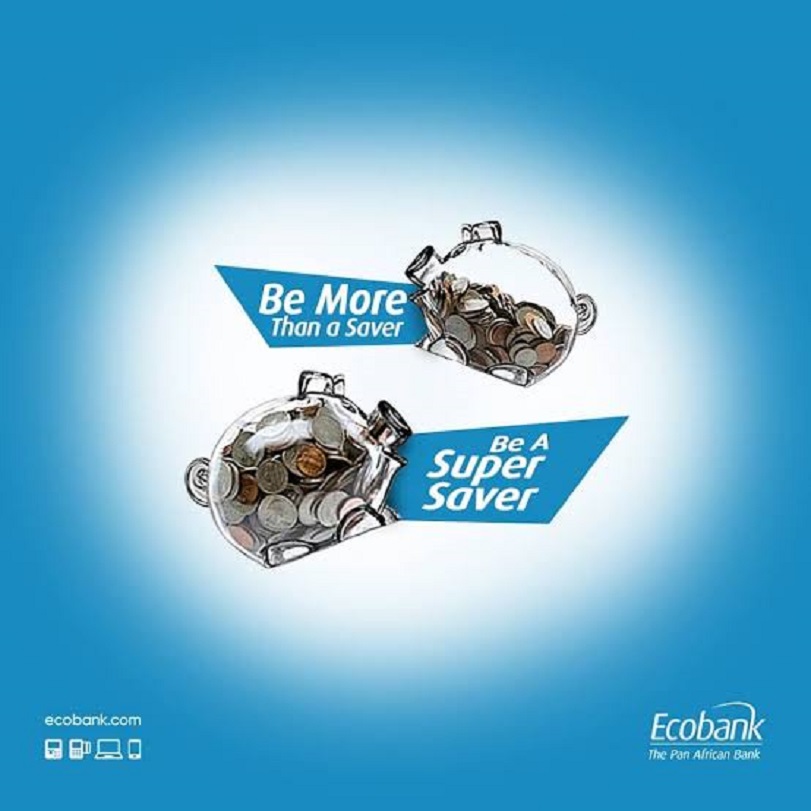Economy
How Much Do You Really Know About Credit Restoration? Learn More Here

Like most people, you probably think of credit restoration as a way to fix your credit score after you’ve made some mistakes. But what if I told you that credit restoration is about so much more than just fixing your credit score? Credit restoration can be one of the most important steps to rebuilding your financial life. So what exactly is credit restoration, and why is it so important? Keep reading to find out.
What is Credit Restoration?
In short, credit restoration is the process of repairing your credit history and improving your credit score. However, for credit restoration to be effective, it’s essential to understand the factors that go into your credit score. Your payment history is the most important factor, accounting for 35% of your score.
This means that if you have a history of late payments or defaults, your credit score will suffer. The next most important factor is your credit utilization, which makes up 30% of your score. This is the amount of debt you have compared to your credit limit: the lower your credit utilization, the better.
Should You Find a Credit Repairing Service Provider?
If your credit score is suffering, you may wonder if you should find a credit repair service provider. While these companies can be helpful, it’s important to remember that you can do most of the work yourself. A good credit restoration service will help you understand your rights under the Fair Credit Reporting Act (FCRA). They will also dispute any inaccurate or outdated information on your credit report. Following the proper steps can improve your credit score and get you back on track financially.
Credit repair companies often charge high fees, so it’s crucial to weigh the cost before you decide to use one. Go online for information on the best experts. If you decide to use services that can help restore your credit, choosing one that is reputable and has a good track record is essential. You can check reviews online to see what others have said about the company or ask for recommendations from friends.
What is the Credit Restoration Process?
The first step is to order your credit report from all three major credit bureaus. This will give you an idea of where you stand financially.
Next, you’ll want to dispute any negative items on your report by writing a letter to the credit bureau. Be sure to include any evidence you have to support your dispute.
Once you’ve disputed the negative items on your report, it’s time to focus on rebuilding your credit. This can be by paying down your debt and making on-time payments. By taking these steps, you can improve your credit score and get back on track financially.
How Do I Start Credit Restoration?
If you’re ready to start credit restoration, the first step is to get a copy of your credit report. You can get a free copy of your credit report from each of the three major credit bureaus – Experian, Equifax, and TransUnion. Once you have your credit report, please review it carefully to identify any negative items you want to dispute.
Also, take a look at your credit utilization ratio. This is the amount of debt you have compared to your credit limit; the lower your credit utilization, the better. Besides, it’s elemental to develop good financial habits like paying your bills on time and staying within your credit limit.
If you find any negative items on your credit report, you can dispute them by writing a letter to the credit bureau. Be sure to include any evidence you have to support your dispute. Once you’ve disputed the negative items, it’s time to focus on rebuilding your credit. You can do this by paying down your debt and making on-time payments.
Why is Credit Restoration Important?

There are a few reasons why credit restoration is so important. First, your credit score is one of the most critical factors in determining your financial future. If you have a low credit score, you’ll likely have difficulty qualifying for loans and lines of credit. You may also be charged higher interest rates, making it difficult to get out of debt.
Second, your credit history is a reflection of your financial responsibility. If you have negative items on your credit report, it’s essential to take steps to improve your credit history. This will show future lenders that you’re committed to paying off your debts and making on-time payments.
Finally, credit restoration can help you save money. If you have a high credit score, you’ll likely qualify for lower interest rates on loans and lines of credit. This can save you hundreds or even thousands of dollars over the life of your loan.
Credit restoration is a necessary process that can help you improve your credit score and get back on track financially. If you have negative items on your credit report, dispute them. Also, focus on rebuilding your credit by paying down your debt and making on-time payments. By taking these steps, you can improve your financial future.
Economy
Grey to Cut Cross-Border Payment Costs with New USD Offering

By Adedapo Adesanya
A cross-border payments solutions company, Grey has expanded its business banking platform to include US Dollar corporate accounts, bulk international payments, and USDC stablecoin support, all integrated into a single system.
The company is positioning itself as a low-cost, faster alternative to traditional international banking, particularly for businesses in emerging markets as it enables companies to open US Dollar accounts, receive global payments, and send payouts to 170+ countries, including bulk transfers, within minutes.
Grey aims to solve common cross-border payment challenges, particularly the high transfer costs that often range between 6 and 7 per cent of transaction value, prolonged settlement cycles that can stretch across several days, and the limited access many businesses face when trying to open and operate foreign currency accounts. In addition, companies frequently contend with hidden intermediary fees and poor foreign exchange transparency, both of which undermine cost predictability and effective cash flow management.
By integrating USD business accounts and USDC stablecoin functionality into its platform, Grey enhances its value proposition around faster settlement, clearer pricing structures, improved cost efficiency, and broader global accessibility. The expanded capabilities enable businesses to manage international transactions with greater speed, transparency, and operational control.
“Businesses may operate without borders today, but access to reliable global banking remains uneven, particularly for companies in high-growth markets,” said Mr Idorenyin Obong, Co-founder and Chief Executive Officer of Grey. “We’re closing that gap and enabling businesses to move money faster, with greater transparency and control, wherever their clients or partners are based.”
“When payments are delayed, or costs are unpredictable, growth stalls,” added Mr Joseph Femi Aghedo, Chief Operating Officer and Co-founder of Grey. “Grey eliminates those friction points, giving businesses a faster, simpler way to manage payroll, supplier payments, and partner payouts across borders. Adding USD and stablecoin capabilities makes these benefits accessible to even more customers.”
Established in Africa in 2020, Grey has a presence in key markets, including the United States, the United Kingdom, and Europe, and has recently expanded its services and operations into Latin America and Southeast Asia.
Since its inception, the company has consistently enhanced its services to empower digital nomads worldwide, regardless of location. Grey’s offerings include multi-currency accounts, low-cost international money transfers, a virtual USD card, expense management tools, and robust security measures.
Economy
Quidax, Lisk to Unlock Stablecoins, On-chain Financial Opportunities

By Aduragbemi Omiyale
A partnership designed to expand access to stablecoins and on-chain financial opportunities for everyday users and businesses has been entered into between Quidax and Lisk.
The partnership provides a critical gateway for the developer community, as builders on the Lisk network can now leverage Quidax’s robust digital asset infrastructure to access stablecoins and local currencies at competitive rates.
This institutional-grade infrastructure is designed to power “future-forward” financial products, ranging from neobanks and cross-border payment platforms to regional exchanges and global fintech solutions. It will also allow Quidax customers to trade and move value seamlessly using USDT, USDC, LSK, and Ether (ETH) on the Lisk network.
The collaboration will also accelerate the adoption of Web3 solutions that solve real-world financial challenges for millions of customers across Africa by combining Quidax’s deep local liquidity and compliant framework with Lisk’s scalable L2 technology.
In 2024, Quidax became the first crypto exchange to receive a provisional operating license from Nigeria’s Securities and Exchange Commission (SEC).
“The partnership with Lisk enables us to extend our platform to serve more people and cater to the increasing demand from products and services that want to integrate our stablecoin and digital assets product to build products across Africa,” the Chief Infrastructure Officer at Quidax, Mr Morris Ebieroma, said.
Also commenting, the Ecosystem Lead for Africa at Lisk, Ms Chidubem Emelumadu, said, “Africa represents one of the most critical frontiers for blockchain innovation, where the demand for reliable and inclusive financial tools is urgent.
“Our partnership with Quidax expands access to stablecoins and on-chain financial opportunities for everyday users and businesses. At the same time, it gives founders building on Lisk the critical infrastructure they need to create solutions that can scale meaningfully across the continent,” she added.
Economy
Customs Urges Freight Forwarders to Adopt Automated Licence, Permit System

By Adedapo Adesanya
The Nigeria Customs Service (NCS) has urged freight forwarders to adopt its automated Licence and Permits Processing system to reduce the cost of doing business.
This advice was given by the Assistant Comptroller-General of Customs, Mr Muhammed Babadede, during a stakeholders’ engagement on automation held in Lagos on Monday.
He noted that the reform responds to longstanding demands for faster, more transparent and simpler procedures for industry stakeholders, disclosing that Comptroller-General of Customs, Mr Bashir Adeniyi, has approved the full automation of the service’s licences and permits processes.
“For years, stakeholders dealt with paperwork, long queues and uncertainty from manual processing. Those days are coming to an end.
“This sensitisation is across all zones. The goal is to ensure stakeholders understand the automated system before implementation,” Mr Babadede said.
He said automation would enable applications and renewals from offices or mobile phones, eliminating visits to customs formations, assuring stakeholders of a fair and consistent process, and reducing errors associated with manual documentation.
He said automation would improve record-keeping, supervision and service delivery without increasing pressure on officers.
The Deputy Comptroller-General, Tariff and Trade, CK Naigwan, also represented by Mr Babadede, reiterated management’s commitment to seamless implementation.
Meanwhile, the Comptroller of Customs for Licence and Permit Unit, Mrs Ngozika Anozie, praised the Comptroller-General for driving innovation within the Service, saying the automation aligns Customs procedures with global best practice and strengthens institutional efficiency.
According to her, the reform reflects the three-point agenda of the Chairman of the World Customs Organisation, Mr Adeniyi, centred on consolidation, collaboration and innovation.
She said the system would enhance the ease of doing business in the maritime sector and boost national revenue generation.
“Automation will cut business costs and reduce travel risks for stakeholders
“They will no longer travel repeatedly to Abuja, paying for transport, hotels and feeding to process licences and permits,” she said, adding that the platform would automatically reject fake documents and accept genuine submissions, curbing fraudulent practices.
“The CGC is determined to sanitise the system, and we are committed to achieving that objective,” Mrs Anozie said.
On his part, the Assistant Superintendent of Customs, Mr Ibrahim Usman, said the Licence and Permit Unit operates under the Tariff and Trade Department.
He explained that the unit ensures proper issuance of licences and permits and compliance with import regulations.
Mr Usman said all licences and permits expire on December 31 of their issuance year.
He added that the portal would become fully operational after nationwide sensitisation, with stakeholders duly informed.
Customs Area Controller, Tincan Island Command, Mr Frank Onyeka, thanked stakeholders for their continued support.
He urged them to take the exercise seriously to achieve seamless processing across Customs operations.
Stakeholders raised concerns about online payment integration and potential technical disruptions.
Officials addressed the questions and pledged continued engagement to ensure smooth implementation nationwide.
-

 Feature/OPED6 years ago
Feature/OPED6 years agoDavos was Different this year
-
Travel/Tourism10 years ago
Lagos Seals Western Lodge Hotel In Ikorodu
-

 Showbiz3 years ago
Showbiz3 years agoEstranged Lover Releases Videos of Empress Njamah Bathing
-

 Banking8 years ago
Banking8 years agoSort Codes of GTBank Branches in Nigeria
-

 Economy3 years ago
Economy3 years agoSubsidy Removal: CNG at N130 Per Litre Cheaper Than Petrol—IPMAN
-

 Banking3 years ago
Banking3 years agoSort Codes of UBA Branches in Nigeria
-

 Banking3 years ago
Banking3 years agoFirst Bank Announces Planned Downtime
-

 Sports3 years ago
Sports3 years agoHighest Paid Nigerian Footballer – How Much Do Nigerian Footballers Earn

















